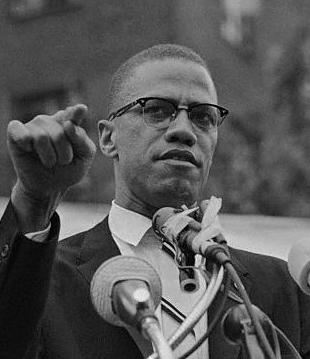Leaping the Gap: Addressing Independence in Underprivileged Communities
 It's amazing to me that in this day and age, very few of us have addressed the issue of independent ownership on the web. With the advent of Media Make Change, and its like-minded allies, we have a venue by which to address the inequities that persist in an increasingly global and digital world. Some of the first things I thought of when it came to addressing "ownership" came from Malcolm X, community organizer. While he's most popular for his radical stances and politics, he's also well-known for his advocacy for community ownership. His idea of ownership stems from understanding that the minute a community invests in their own financial capital, the more they'll invest in their own human capital.
It's amazing to me that in this day and age, very few of us have addressed the issue of independent ownership on the web. With the advent of Media Make Change, and its like-minded allies, we have a venue by which to address the inequities that persist in an increasingly global and digital world. Some of the first things I thought of when it came to addressing "ownership" came from Malcolm X, community organizer. While he's most popular for his radical stances and politics, he's also well-known for his advocacy for community ownership. His idea of ownership stems from understanding that the minute a community invests in their own financial capital, the more they'll invest in their own human capital.
The same applies to the web.
While the percentage of homes with Internet access grows yearly, there's around a 20% difference between percentage of Blacks and Latinos home access and Whites and Asians, so the digital divide persists. Even amongst those of us who have Internet access, regardless of background, we still rely heavily on free services such as Blogspot and Livejournal to host our thoughts, Facebook and Ning to house our networks, and Twitter and (sadly) MySpace for promotions. While many of the reasons why we stick to the free services are purely economical, a few of us with the capita don't invest simply because we would rather outsource our personal information.
And that's where the future lies.
In my case, I relied heavily on free services to host everything I did. I was an early adapter to Facebook, Xanga, Twitter, MySpace, and every other larger scale social network service there was. Then, as my interests expanded, I began to see the limitations of these spaces. I started to see friends in similar fields get their memberships revoked or their material dissolved. Social networks began to change their terms of service to de-privatize personal usage, and some services even began to arbitrarily block certain sites that others deemed offensive, even when others of its like never got any warnings.
Thus, with the help of a few friends, I got my own .com.
Admittedly, this is not a new idea for many of us web savants. Multiplatinum musicians and businessmen advertised this idea in the early 90s. Yet, how to attain this status has escaped those who didn't have access early on. Even I had my fears about jumping into this web on my own.
Still, the cost of freedom is worth every penny. In my journey, these three points helped develop my own presence on this vast Internet:
- I have my own name and extension under which anyone can reach me.
- I have contracted independent hosting (note: the difference here is that the hosting services are beholden to you when you're paying, especially if you know what you're supposed to get)
- I use the free services as a means of networking with those who use the services.
Notice that the relationship here is different. Once you've controlled your own space on the Web, you can now interact on those sites without being beholden to them. In a way, they need you because it's your content that engages your network, particularly when you build a sizable network of your own.
Media Make Change is part of that vision. Building and teaching to a curriculum that serves the people who need this sort of information the most may do well for our prospects in decades to come. Until then, let's work towards our independence, one .com at a time.
How else can we build as a community on the Internet?
Jose Vilson, who wrote a synopsis of this back at his site ...